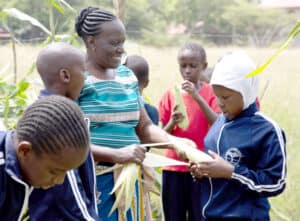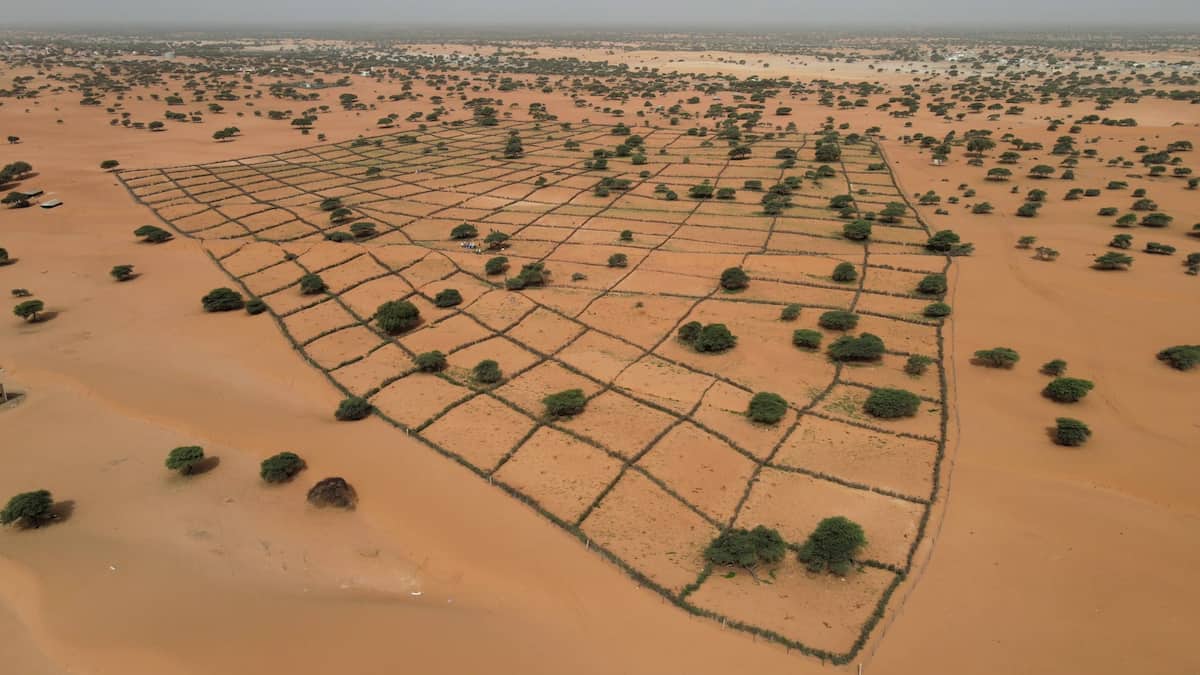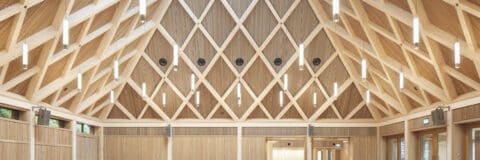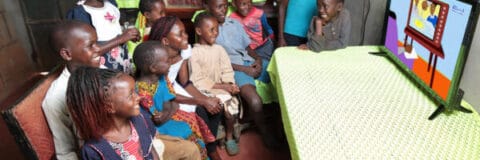
Bringing together education and agriculture at a school in Kenya is not only helping children learn about biodynamic farming, but directly improving their health and physical development, too. Basic food provision is helping combat malnutrition by way of well-balanced and pesticide-free school meals. In addition, the practical knowledge about crop production that pupils gain in gardening lessons is feeding into longer-term lifestyle behaviours and even work and career choices.
Located on the edge of Masai land around 30km out of Nairobi, the Rudolf Steiner School in Mbagathi has 350 students. The story of the school’s pioneering work learning about farming according to biodynamic principles has been captured in an 11-minute documentary (below), which is part of the Living Farms series. The video was made by Lin Bautze (project manager) and Philipp Wilson (camera) from the Section for Agriculture at the Goetheanum.
Bringing education and agriculture together, food crops are literally on the syllabus at the school, with lessons looking at the plants that form part of the children‘s breakfast, for instance.
There is a good reason for this: some of the students attending this school come from very poor backgrounds and are undernourished. The beneficial effect of the school meals can be seen directly in their health and growth.
The school started in 1989 with a small vegetable plot that has now grown into a large area with fruit trees and fields where vegetables such as cabbage, spinach and carrots are grown. In 2016 farming converted from organic to biodynamic.
Francis Kilonzo, who is responsible for the farm and the garden, points out the soil‘s specific properties:
“The type of soil we have on our farm is black cotton soil. During the rainy season it retains a lot of water, which makes it difficult for the crops. When the rain goes, it gets dry very fast and makes it hard for crops to survive.”
Red soil and compost are mixed-in to improve the soil‘s basic structure, using manure from the school‘s own cows, weeds from the garden, kitchen scraps and the five biodynamic compost preparations.
In the gardening lessons, students learn where the food comes from and how it is produced. This can have long-term positive effects, as some have gone on to become farmers after leaving school. says gardening teacher Rose M Ingala:
“They really know the importance of the soil; they really know the treasure there is in the soil.”
To widen the reach of the project still further, a practical solution has been found for the school holidays, when the land is used for students of biodynamic farming and Waldorf education from all over Africa.
Based in Switzerland, the Goetheanum is the headquarters for the School of Spiritual Science and the General Anthroposophical Society. The School of Spiritual Science with its 11 sections is active worldwide in research, development, teaching, and the practical implementation of its findings.
Image: Rudolf Steiner School Mbagathi, Kenya; Gardening teacher Rose M Ingala (Photo: Lin Bautze).
Further Reading:
- More about the Living Farms project.
- More on the Goetheanum (website available in German, French and Spanish, as well as English).
>>> Do you have sustainability news to broadcast and share? If you would like to see it featured here on SustMeme, please use these Contact details to get in touch and send us your Press Release for editorial consideration. Thanks.





